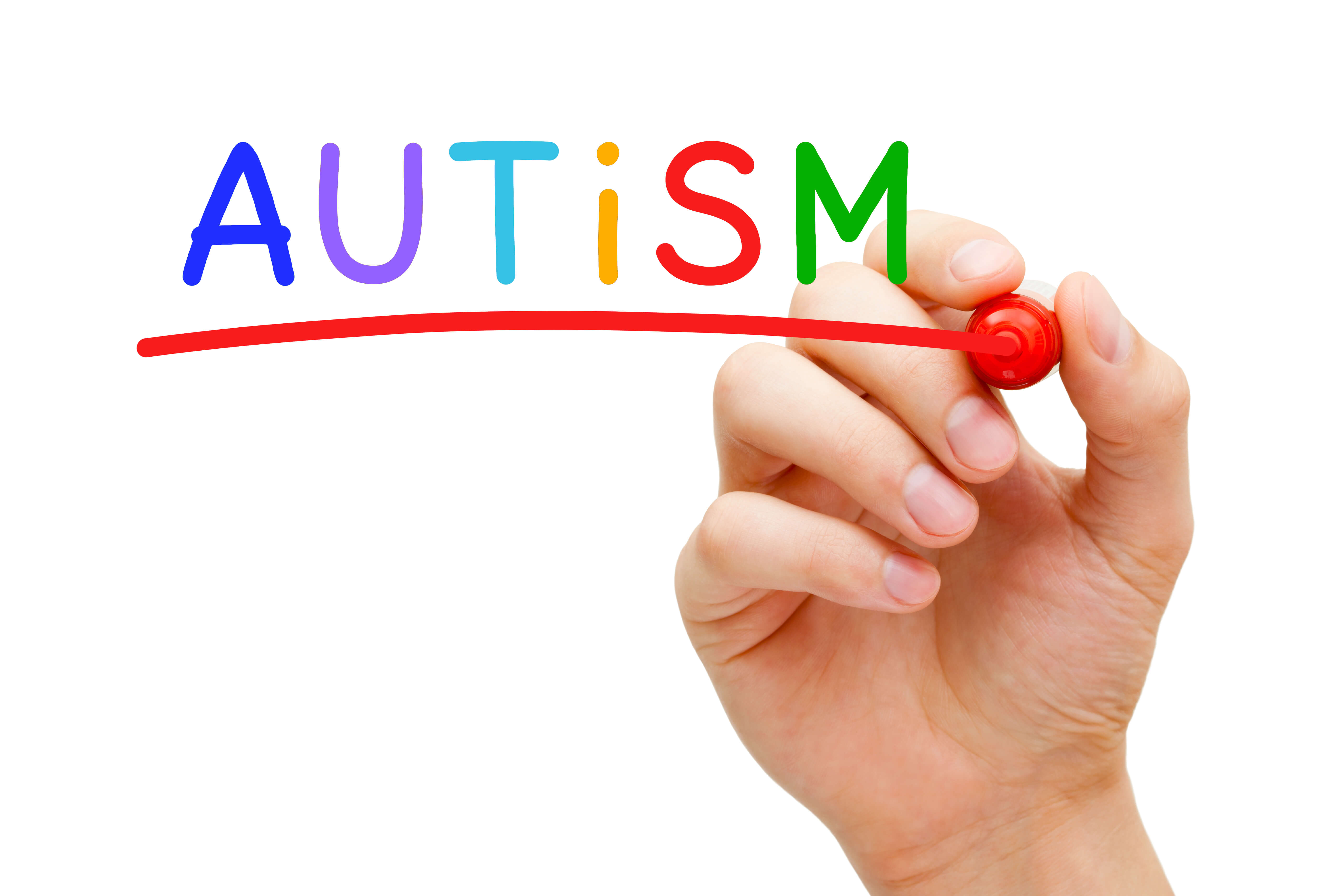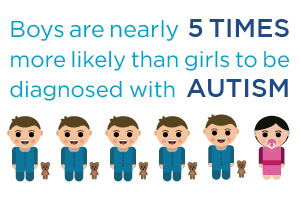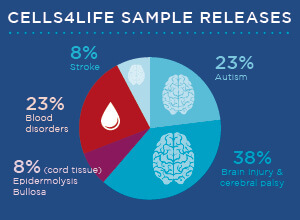Autism and Stem Cells
Autism spectrum disorder (ASD) is a disability which affects development. It impairs the way a person communicates and the way they perceive and interact with the world around them. The condition is described as a spectrum disorder; this means that although some people may share some of the characteristics associated with being autistic, the way each individual is affected can vary.
While many people with the condition lead independent lives others can require a lifetime of support because of the severity in which they have been affected by learning disabilities.
The causes of autism are not yet fully understood and are still under investigation; however, research suggests that genetic and environmental factors may account for changes in brain development.[1] Researchers believe that defective connections in the brain may be the cause. A dysfunctional immune system may also have affected the development and operation of the nervous system in some children with the condition. Steroids and anti-inflammatories have had some promise in studies as a symptomatic therapy for autism [2].

Autism Facts
- Around 700,000 people in the UK are living with the condition, or more than 1 in 100[3]
- The cost of ASD throughout a person’s [lifetime] was estimated as £1.5 million for those with intellectual disability and £0.92 million for those without intellectual disability [4]
- It is the most costly condition in the UK costing more than heart disease, cancer and stroke combined [4]
- 25% of people with the condition are unable talk [4]
- Only 16% of people with the condition work full time [4]
- Children who have a sibling with ASD are at a higher risk of also having ASD [5]
- Children born to older parents are at greater risk for having ASD [5]
- Boys are nearly five times more likely than girls to have autism [6]
- There is no medical detection or cure [6]

Autism and Cord Blood Stem Cells
There is currently no cure for those with ASD; however, research with stem cells could offer some hope. A trial in the United States by Sutter Neuroscience Institute in Sacramento, California, and Cord Blood Registry is the first of its kind to explore the role of cord blood infusions in children with autism. The aim is to assess if cord blood infusions could help improve the behaviour and language of the children in the trial by modulating inflammatory responses in the brain.
There is evidence to suggest that some children with the condition have dysfunctional immune systems which may be delaying the development or damaging the nervous system. Dr. Chez, director of paediatric neurology at Sutter Medical Center and principal study investigator says “Cord blood stem cells may offer ways to modulate or repair the immune systems of these patients, which would also improve language and some behaviour in children who have no obvious reason to have become autistic”.[7]
Duke University, North Carolina, is also investigating the application of cord blood in the treatment of autism. The research project uses umbilical cord blood to treat a total of 390 children and adults with the condition through a series of clinical trials.[8]
An early trial in 25 children concluded in 2017 and found that cord blood infusions created “significant improvements in children’s behaviour”, including their vocabulary, social communication skills and eye tracking.9
A phase II randomised clinical trial published in 2020 found children with Autism and without intilectual disability treated with cord blood showed significant improvements in communication skills (VABS-3 Communication Domain), and exploratory measures including attention to toys and sustained attention (eye-tracking) and increased alpha and beta electroencephalographic power.10,11
Our Releases
Cells4Life has released 3 stem cell samples for the treatment of autism in the groundbreaking Duke University trial.
Autism and Stem Cell Headlines
NIH awards $13 million grant for stem cell research in autism, other mental health disorders
Understanding autism: Human stem cells offer new research approach
Stem cell therapy inches towards an autism cure
References
- Sharma, A., Gokulchandran, N., Sane, H., Nagrajan, A., Paranjape, A., Kulkarni, P., Shetty, A., Mishra, P., Kali, M., Biju, H., & Badhe, P. (2013). Autologous bone marrow mononuclear cell therapy for autism: an open label proof of concept study. Stem cells international, 2013, 623875. https://doi.org/10.1155/2013/623875
- http://www.cordblood.com/stem-cell-research/cord-blood-research/autism/
- https://www.autism.org.uk/about/what-is/myths-facts-stats.aspx
- http://www.lse.ac.uk/newsAndMedia/news/archives/2014/06/Autism.aspx
- http://www.healthline.com/health/autism-risk-factors#GeneticFactors2
- https://www.autismspeaks.org/what-autism/facts-about-autism
- http://www.cordblood.com/stem-cell-research/cord-blood-research/autism
- http://psychiatry.duke.edu/news/news-archive/marcus-foundation-grant
- Dawson, G., Sun, J. M., Davlantis, K. S., Murias, M., Franz, L., Troy, J., Simmons, R., Sabatos-DeVito, M., Durham, R., & Kurtzberg, J. (2017). Autologous Cord Blood Infusions Are Safe and Feasible in Young Children with Autism Spectrum Disorder: Results of a Single-Center Phase I Open-Label Trial. Stem cells translational medicine, 6(5), 1332–1339. https://doi.org/10.1002/sctm.16-0474
- Dawson, G., Sun, J. M., Baker, J., Carpenter, K., Compton, S., Deaver, M., Franz, L., Heilbron, N., Herold, B., Horrigan, J., Howard, J., Kosinski, A., Major, S., Murias, M., Page, K., Prasad, V. K., Sabatos-DeVito, M., Sanfilippo, F., Sikich, L., Simmons, R., … Kurtzberg, J. (2020). A Phase II Randomized Clinical Trial of the Safety and Efficacy of Intravenous Umbilical Cord Blood Infusion for Treatment of Children with Autism Spectrum Disorder. The Journal of pediatrics, 222, 164–173.e5. https://doi.org/10.1016/j.jpeds.2020.03.011
- Nguyen, L. T., Nguyen, P. H., & Hoang, D. M. (2021). A phase II randomized clinical trial of the safety and efficacy of intravenous umbilical cord blood infusion for treatment of children with autism spectrum disorder. The Journal of pediatrics, 230, 271–272. https://doi.org/10.1016/j.jpeds.2020.11.063
- Nguyen Thanh, L., Nguyen, H. P., Ngo, M. D., Bui, V. A., Dam, P. T. M., Bui, H. T. P., Ngo, D. V., Tran, K. T., Dang, T. T. T., Duong, B. D., Nguyen, P. A. T., Forsyth, N., & Heke, M. (2021). Outcomes of bone marrow mononuclear cell transplantation combined with interventional education for autism spectrum disorder. Stem cells translational medicine, 10(1), 14–26. https://doi.org/10.1002/sctm.20-0102 The information contained in this article is for information purposes only and is not intended to replace the advice of a medical expert. If you have any concerns about your health we urge you to discuss them with your doctor.


